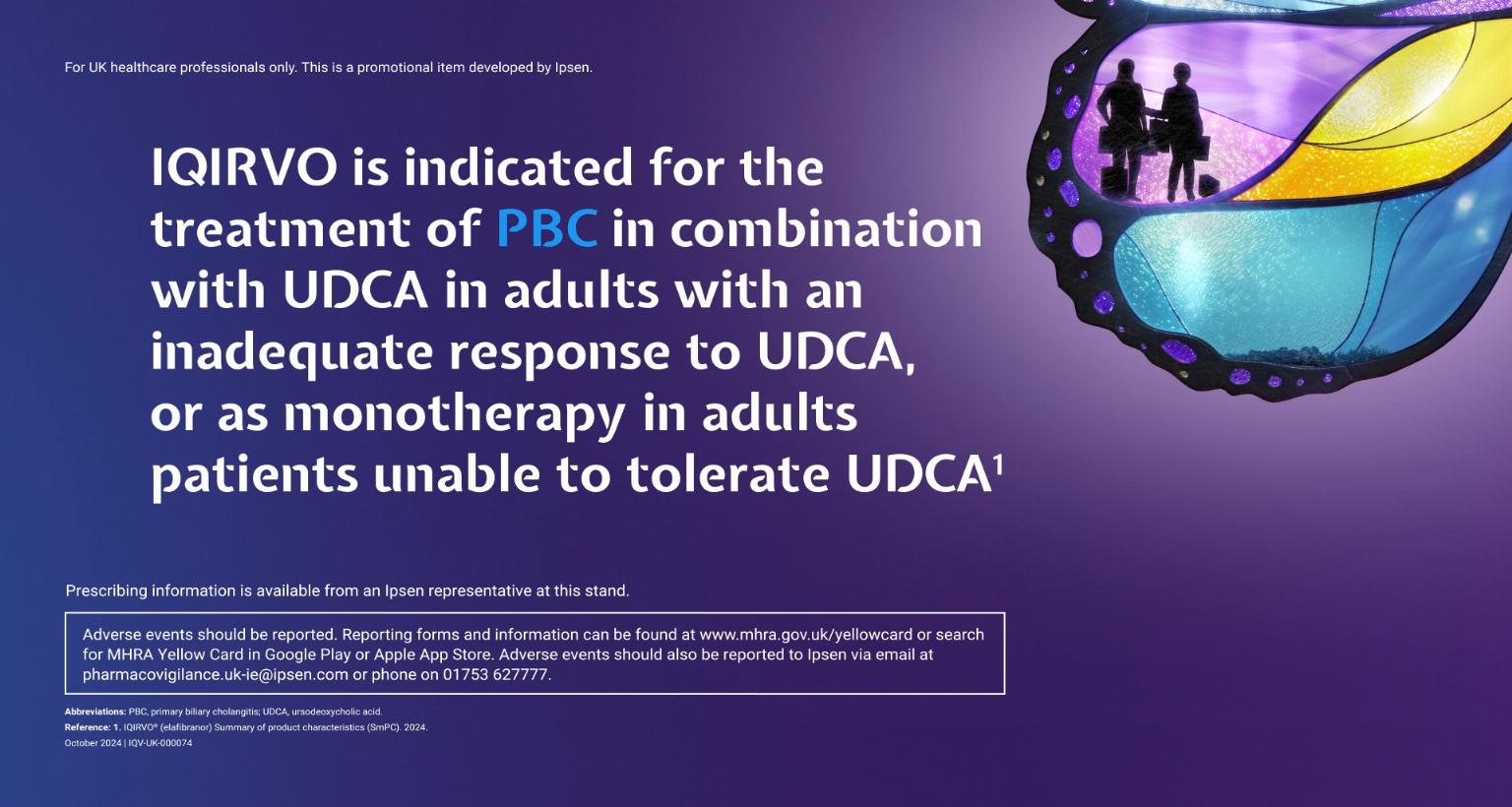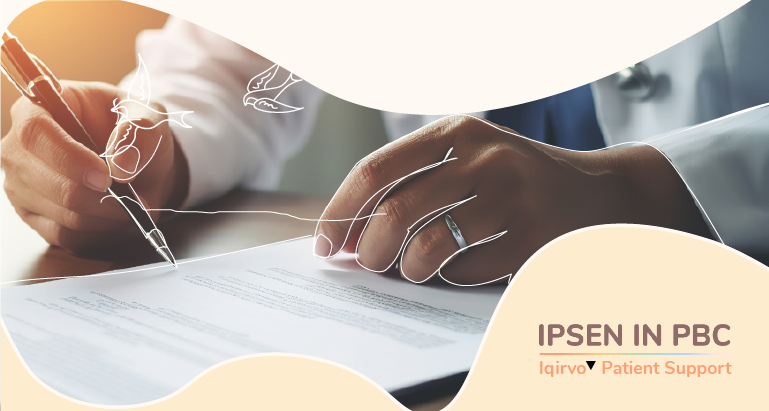▼ This medicinal product is subject to additional monitoring. Adverse events should be reported. Reporting forms and information can be found at https://yellowcard.mhra.gov.uk/ or search for MHRA Yellow Card in Google Play or Apple App Store. Adverse events should also be reported to Ipsen via email at pharmacovigilance.uk-ie@ipsen.com or phone on 01753 627777.

UNLOCK THE IQIRVO®▼ (ELAFIBRANOR) EFFECT
A once-daily tablet for all eligible patients – with no dose adjustment1
IQIRVO is a once-daily tablet with no dose adjustment required and is indicated for the treatment of primary biliary cholangitis (PBC) in combination with ursodeoxycholic acid (UDCA) in adults with an inadequate response to UDCA, or as monotherapy in adults unable to tolerate UDCA.1
IQIRVO®▼ (elafibranor)

PBC HCP Guide
This booklet, intended for HCPs only, provides an overview of IQIVRO including which PBC patients are eligible, how it works, dosing, special considerations as well as efficacy and safety data.
ELA-UK-000057 | October 2024
Abbreviations
*IQIRVO + UDCA met the primary endpoint of cholestasis response, defined as by ALP <1.67 x ULN, and ALP decrease ≥15% and TB ≤ULN.1,3-6
†Patients either received IQIRVO on a background of UDCA (102/108) or received UDCA plus a placebo (51/53).
References
- IQIRVO® (elafibranor) Summary of product characteristics (SmPC). 2023.
- Kowdley KV et al. N Engl J Med. 2024;390(9):795–805.
- Lammers WJ et al. Gastroenterology. 2014;147(6):1338–1349.
- Corpechot C et al. Clin Res Hepatol Gastroenterol. 2022;46(1):101770.
- de Veer RC et al. Aliment Pharmacol Ther. 2022;56(9):1408–1418.
- Murillo Perez CF et al. Am J Gastroenterol. 2020;115(7):1066–1074.


